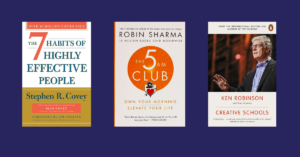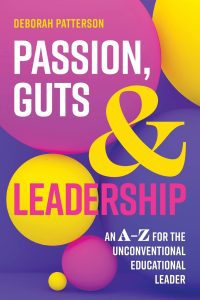In the past year, I’ve conducted over 100 interviews for teaching and educational support roles.
Despite the sheer number, my school isn’t grappling with a workforce crisis. The abundance of interviews is a result of reaching the conclusion of our leadership cycle, where all leadership positions became available. Additionally, our school’s growth contributed to the substantial demand. I found myself spending numerous hours in our boardroom, probing candidates with both challenging and more straightforward questions, to the point where I now know every inch of that space.
During this extensive interview process, I’ve encountered remarkable individuals, experienced moments of frustration, and sometimes wished I could conclude an interview after just a few minutes.
Having surpassed the century mark in interviews, I’ve gained a clear understanding of what works in an education interview. Here are my top 5 words of advice for those entering the realm of school job interviews:
🗣️ Just answer the question!
I know that you have read the website and have got lots of examples ready to go from your current workplace (or teaching rounds) but you need to listen to the questions carefully and then address them specifically. Teachers make their students do this with exam questions; you need to do the same in the interview. Don’t attempt to cram a pre-rehearsed answer into a question that is not relevant.
⏰ Goldilocks time
We don’t have all day! Principals, DP’s, Heads of Faculty, and HR managers are busy. For any role that is from middle leadership down, 30 minutes will be, on average, the time you are allocated, so you can’t spend 7 minutes on one question. Keep it concise. Give your view on the question, one example, and wrap it up. In saying that a 45-second answer for most questions won’t cut it either, so you need to get the length of the answer right based on the depth of the question.
📝 It’s not a memory test
The days of needing to know everything off by heart are gone. You should be bringing in notes to the interview, at minimum a highlighted version of the position description. This year I even got to see some folios of work. I loved this. It mixed up the interview. Also, you can make notes during the interview. Write key information down. This may shape your questions at the end of the interview.
🚸 You only need 2 words to answer this question
What are your obligations when it comes to child safety? Answer: Mandatory Reporting. It’s that simple. Everyone working in a school has a legal obligation to report any suspicious behaviour to the authorities. So, while going into depth for this question is ok, we need to hear those magic words.
🌟 Just be yourself
I know this piece of advice would be listed on every career’s website, but it is so true. You need to get past the nerves, command the room and make us confident that you can do the job. As I write this, there is a skills shortage, particularly in education, so take a risk. If you miss out, there will be lots of other jobs waiting for you. However, taking that risk may give you the tools you need to land the next big gig.
As you step into the world of school job interviews, remember to stay genuine, manage your time wisely, and embrace the opportunity to showcase your unique abilities. These practical tips aim to guide you through the process, allowing your true potential to shine. Good luck in your endeavours, and may your journey in the educational field be as fulfilling as it is challenging.





